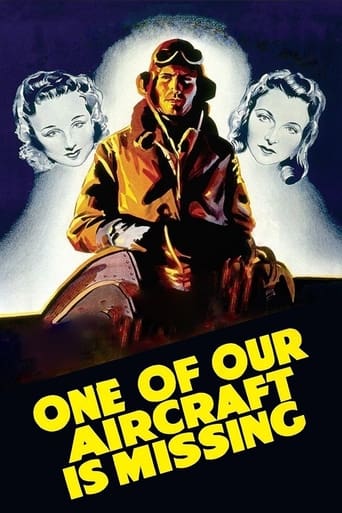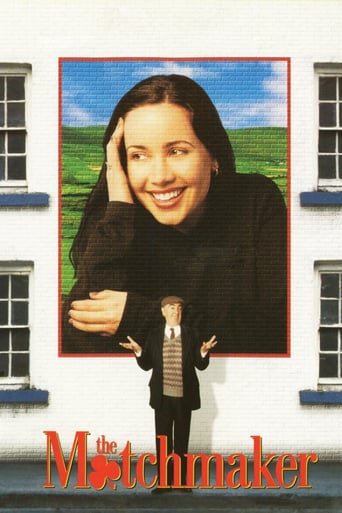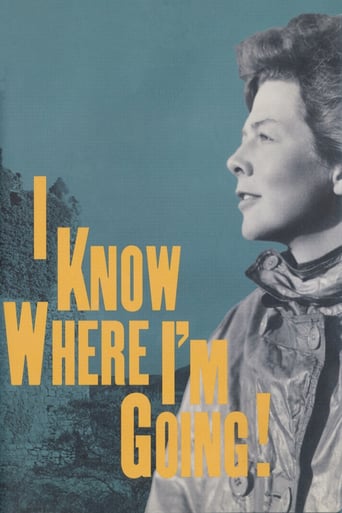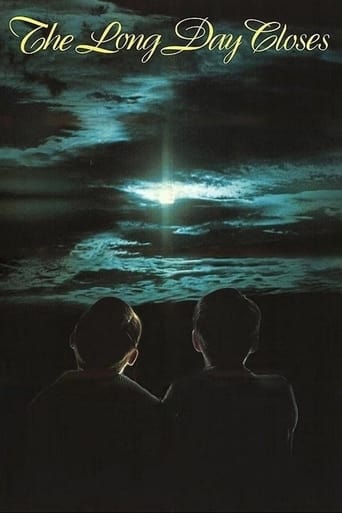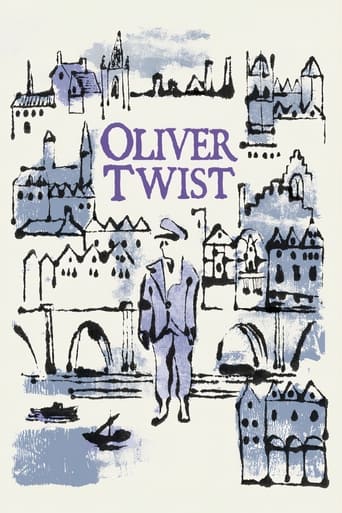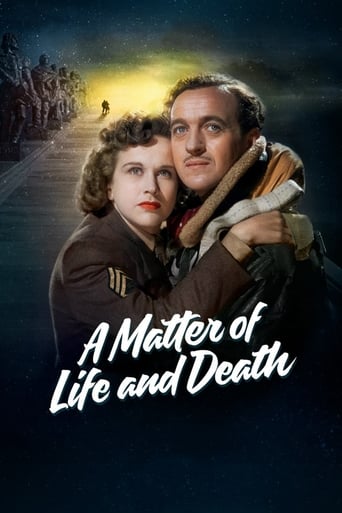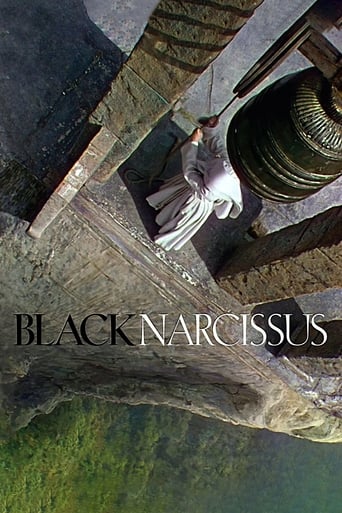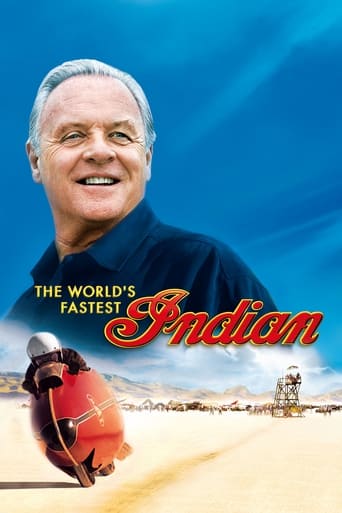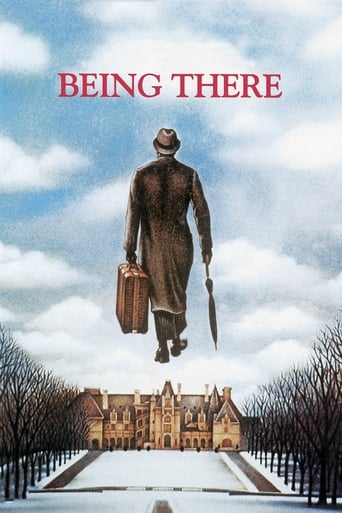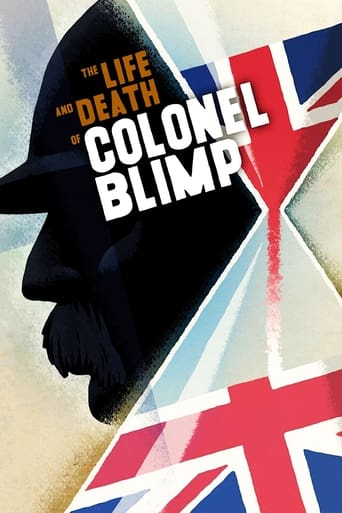


The Life and Death of Colonel Blimp
General Candy, who's overseeing an English squad in 1943, is a veteran leader who doesn't have the respect of the men he's training and is considered out-of-touch with what's needed to win the war. But it wasn't always this way. Flashing back to his early career in the Boer War and World War I, we see a dashing young officer whose life has been shaped by three different women, and by a lasting friendship with a German soldier.
-
- Cast:
- Roger Livesey , Deborah Kerr , Adolf Wohlbrück , Roland Culver , James McKechnie , Arthur Wontner , David Hutcheson


Similar titles
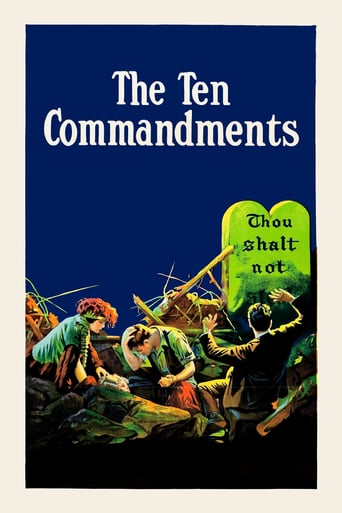
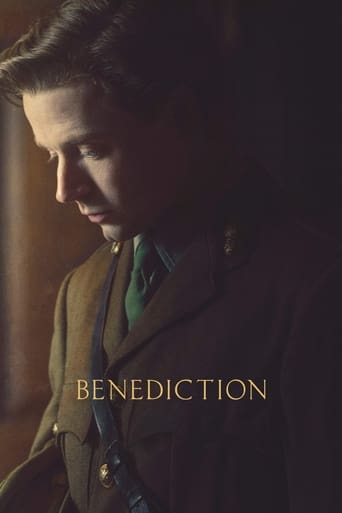
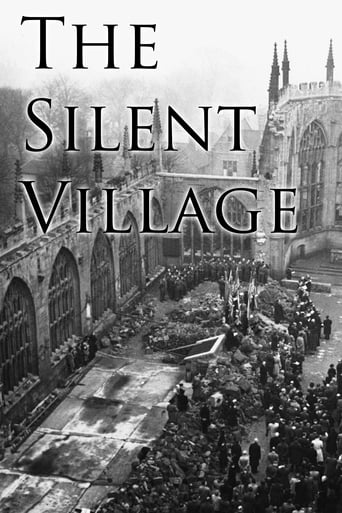
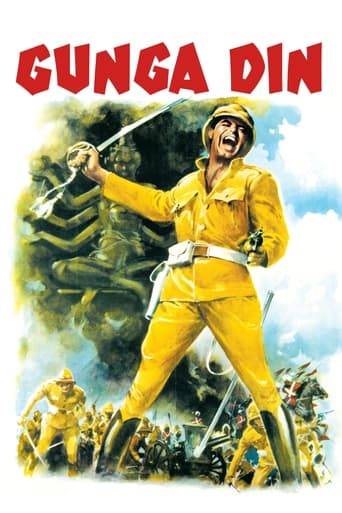
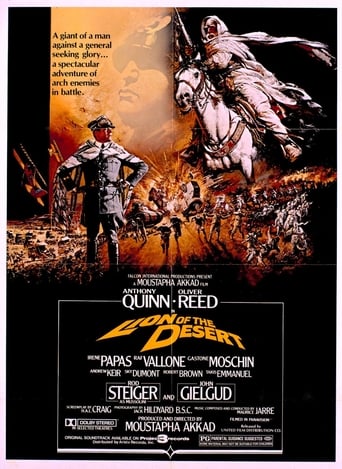
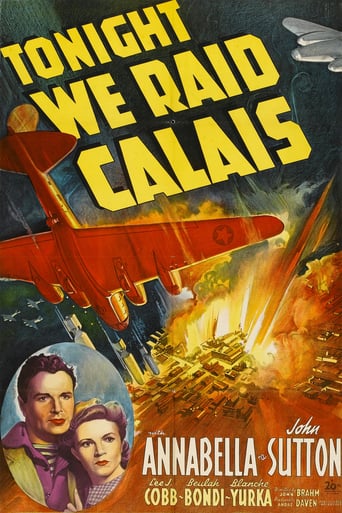
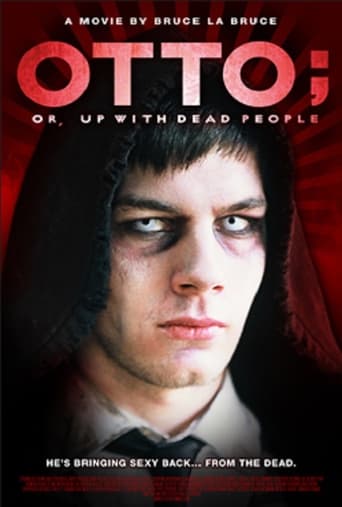
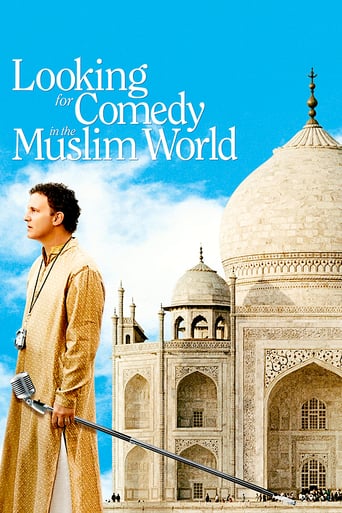
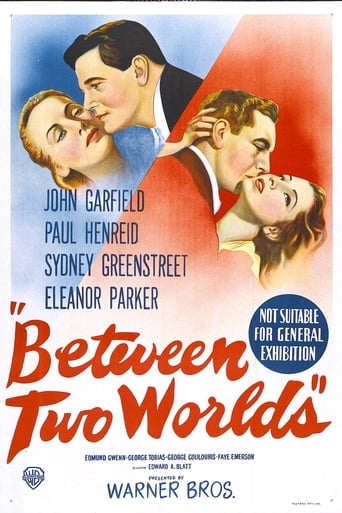
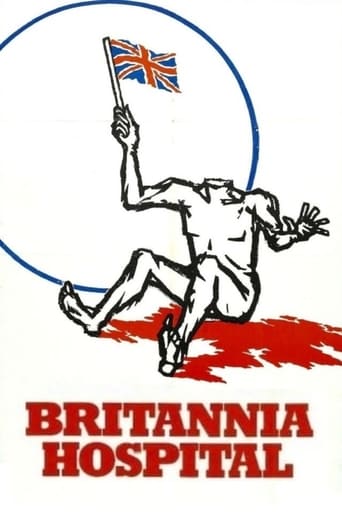
Reviews
Thanks for the memories!
Overrated and overhyped
Lack of good storyline.
Blistering performances.
Colonel Blimp was a humorous cartoon figure born in 1934 with whom British audiences would have been familiar. The inventor claimed to have been inspired by hearing British officers in a Turkish bath arguing that cavalry officers should be permitted to wear spurs inside tanks.The opening credits suggest the Victorian origins of Colonel Blimp's character by use of a needlework tapestry in which the names of the featured players are embroidered. In the center is the rotund, red-faced mounted figure of Colonel Blimp himself, clad only in his signature Turkish towel.The movie opens with a military exercise in which the Home Guard is to defend London from a simulated attack scheduled for midnight. A clever young Army officer decides to jump the gun by six hours, since "the real thing" isn't played by rules. Despite the efforts of a young female military driver (English beauty Deborah Kerr in one of three roles) the dastardly sneak attack succeeds, and the aged Home Guard commanding general and his staff are captured - in a Turkish bath.The viewer's sympathy lies with the young Army officer, who has a realistic view of World War Two. The overweight General Clive Candy - in his Turkish towel - goes red-faced and sputters through his moustache about fair play, and we laugh at the ridiculous figure with his outmoded view of war.Then the movie takes us back 40 years to see a lean and dashing officer who has won the Victoria Cross in the Boer War. Upon receipt of a letter informing him of German lies about British atrocities, he goes on a personal mission to Berlin to refute them. He meets a beautiful English governess who penned the letter (another role for Kerr) and insults the German officer corps in a beer hall, which leads to a duel with Theo Kretschmar-Shuldorff, played by Anton Walbrook (Boris Lermantov in The Red Shoes).The Bear will not spoil the outcome, but we learn the reason for the General's ridiculous mustache. The duelists become fast friends and fall in love with the same governess. Candy acts as if he could not be more pleased for the couple, but then we see him at the theater with the sister of the governess.Let's just say she's no Deborah Kerr.During WWI, now-General Candy meets a nurse who bears a striking resemblance to his first love. When the armistice is signed, he drinks a toast with his driver and gives a little speech about how the Huns waged a barbaric war, but the British won through fair play. He marries the nurse and is reunited with his old German friend, who is now interred in an English POW camp. It is significant that she is 20 years his junior; his living in the past is reflected in his obsession with his first love. After his wife dies, her portrait humorously takes pride of place in his study along with all of his other trophy heads. Her last "incarnation" is the spunky military driver "Johnny" we see in the opening and closing scenes. She happens to be the girlfriend of the cheeky Army officer who cheated in the exercise, and one of the last things General Candy does is to make sure he doesn't get in trouble. It is as if he at least finally lets go of his obsession with the girl of 40 years before and allows her to be claimed by the next generation.At a farewell dinner, the British dignitaries are mostly cool to the defeated German officer, but by the end, they're doing their best to cheer him up about the prospects for him and his country.History proved them wrong, as the original audience would know, and today's audience should never forget. World War Two was the unfinished business of The Great War.The passage of time is cleverly marked by the accumulation of wild game trophies mounted in General Candy's study. By the time World War Two arrives, the world seems to have no room for the Colonel Blimp-like General Candy, now a widower, and his quaint ideas. Once again, his German friend is in England - this time as a refugee. His wife (Candy's first love) has died and both his sons are "good Nazis."The role for Walbrook is poignant because he really did flee Nazi Germany due to two strikes against him: Walbrook was half-Jewish and a homosexual. Theo Kretschmar-Shuldorff understands that Nazis represent an existential threat to civilization, and has grown wiser with years. We feel his pain as he must watch, from the wisdom of bitter experience, his old, naive friend face humiliation.Nonetheless, General Candy seems to find a place in his old age: commanding the Home Guard. The movie ends with a replay of the beginning, only now the viewer has more sympathy for the obese general with his Turkish towel and ridiculous mustache.It is another Technicolor feast for the eyes, although not up to The Red Shoes' visual level. This was wartime, after all, and Technicolor was expensive enough. Many scenes are shot on a soundstage before painted backdrops, but that does not detract.The film starts with a lot of energy and the pace and patter is brisk with some laugh-out-loud moments. It seems almost to age along with General Candy as the terrible new realities of two World Wars take their toll. It is funny, even as we go from laughing at General Candy to laughing with him. It becomes more poignant and even sad as World War Two overtakes it even as it has overtaken its original audience.Women are depicted as intelligent and capable, eventually taking their place in uniform by the end. There are some choice anti-German lines. Here is an observation by General Candy's wife (Kerr also) as they watch German WWI POWs enjoying a concert."I was thinking - how odd they are, queer. For years and years they're writing and dreaming beautiful music and beautiful poetry. All of a sudden they start a war, sink undefended ships, shoot innocent hostages, and bomb and destroy whole streets in London, killing little children. And then they sit down in the same butcher's uniform, and listen to Mendelssohn and Schubert. Something horrid about that... "The acting is very good. Kerr has that fair-skinned beauty that seems to be unique to the British Isles, and we are treated to same kind of set-piece profile shots we see in The Red Shoes. Walbrook plays a far more likeable character than Boris Lermontov, and Roger Livesey's General Clive Candy is humorous and convincing both as the idealistic young hero of the Boer War and the idealistic old fool of World War Two.Part of the reason the Bear finds this movie interesting is in trying to see it through the eyes of the British moviegoer of 1943. To the extent the message seems to justify adopting the worst methods of the enemy in order to prevail in an unprecedented kind of war, it is a little chilling. When old General Candy's BBC broadcast is cancelled, his German friend Theo tells him this:"I read your broadcast up to the point where you describe the collapse of France. You commented on Nazi methods--foul fighting, bombing refugees, machine-gunning hospitals, lifeboats, lightships, bailed-out pilots--by saying that you despised them, that you would be ashamed to fight on their side and that you would sooner accept defeat than victory if it could only be won by those methods."Theo disagrees. He is the expert on Nazis, after all. The message of the movie is Theo is right and General Candy is wrong. To beat Nazis, you must use the methods of Nazis.By 1943, the Germans had been turned back at Stalingrad and the Japanese defeated in the Battle of Midway. The Blitz was over, but V2 rockets were in the future. It is easy for us to say the tide had turned, but Allied victory was by no means obvious at the time and much hard fighting lay ahead, including D-Day and the conquest of Germany.Boomers may have an ambivalent historical appreciation for dreadful exigencies like the fire-bombing of Dresden and the atomic bombs over Hiroshima and Nagasaki, but to see it unapologetically championed in a movie of that time is a little disconcerting. If General Candy were to find himself in today's world, his ideals of limited war and fair play (or at least better public relations) might find a more receptive audience.The movie ends on a forced, upbeat wartime note, but we are meant to see General Candy as a pitiable relic and his ideals as a thing of the past. The genuine optimism is that for all the loose social media chatter about Nazis, we did not have to become them after all.At least not permanently.
My first experience of a Powell-Pressburger film was 'Black Narcissus'. There were certain elements in it that I admired, but overall it left me a bit underwhelmed. So 'The Life and Death of Colonel Blimp' was my second bite of the cherry and I was completely blown away. It is very loosely based on a cartoon character called Colonel Blimp by cartoonist David Low. This character in the cartoons represented the old and the outdated elements of English society. Blimp with his big moustache was arrogant, naive, pompous and out of touch with the rest of the world due to his reluctance to change and let go of his outdated ideals. Although there is no character called Blimp in the film, but the main character of Clive Candy is the one who is supposed to be the figurative Blimp in the story. When the film begins we see Candy with the Blimp-esque moustache in all his overbearing and obnoxious 'glory'. He verbally bashes a younger officer named Spud for showing initiative and doing something out of the book instead of sticking to the rules. But Powell and Pressburger subsequently over the course of the film show us the real man beneath the moustache and his life through flashbacks of significant phases of his past which involve his involvement in the Boer War, WW1 and then ending with the WW2.I read Roger Ebert's review for the film and I have to say that he was at his analytical best while reviewing the film. Although the rift between the young and the old is very quickly established in the film and the viewer will certainly find some lack of logic and prudence in the ideals upheld so strongly by Clive Candy and the old guard, but Ebert correctly states that Powell and Pressburger in the film are actually defending the old. They are doing it not by blaming the new, but by actually trying to understand the old which in this case is the character of Clive Candy. Powell and Pressburger took a cartoon character that was supposed to be mocked and actually treated him with respect and genuine sympathy. The humanism that richly ornaments every minute of this film is very Renoir-esque. This film certainly is a bit of a tribute to a fading era where gentleman ship, courtesy, kindness and chivalry were never eclipsed by ruthlessness. Candy belongs to the era where more time was spent in a round table conference negotiating the rules and the code of honour to be maintained in the battle than the battle itself. The politics in the film can be perceived to be a bit too sentimental and pro-British, but even then the sentimentality gets conveyed in most innocent and adorable manner. But there is one aspect of the film which makes me amazed that this was a film that was released in 1943. That aspect is the way Powell and Pressburger deals with the character of Theo Kretschmar-Schuldorff. By going against all the conventions of propaganda cinema of the time, they actually made Theo a likable, honorable German soldier who becomes the most loving friend of Candy.Another very important theme explored in the film is the change that takes place in a character with age. During flashbacks we see that Candy himself was also quite the hot-blooded young man who didn't hesitate to disobey the orders of his superiors when he felt necessary exactly like Spud. But with time he became the old man who stuck to the rules and had an undying belief in playing fair. Maybe Spud sees a reflection of his future self in Candy. The sight of the old Candy in the midst of the younger generation reminded me of that scene in 'Once Upon a Time in America' where the old, grey haired Noodles looks at the young teenagers enjoying themselves as they pass him by on the road in their car.Now let's come to the acting. Roger Livesey's performance in this film is one of the best performances that I have ever seen. This might seem to be a bit of a over-the-top comment, but I have no hesitation in making this statement. He is an absolute dynamite and yet very nuanced in every scene and plays Candy with the utmost confidence. We see him play the young, the middle aged and then the old Candy. He becomes the character and is believable in every scene. Deborah Kerr plays three different roles. I think these three characters were meant to show the changing roles of women in society with the passage of time. Kerr also like Livesey brings a lot of subtlety to distinguish each of her characters from the other. Anton Walbrook who plays Theo just exudes charm and you can't help but love him and love his friendship with Candy.Like 'Black Narcissus', the cinematography is again brilliant in vibrant Technicolor. Some of the camera movements which Powell used were beautiful and so ahead of its time. Pressburger's screenplay is humane and sympathetic and Powell's style of storytelling only complements and elevates the script to a level where dry British humour goes hand- in-hand seamlessly with rich emotions. I found myself teary eyed on a few occasions during the last few minutes of the film. This certainly is a humanistic masterpiece.
A very odd and fascinating film tracing the military career of a hotshot Englishman.That the film is both odd and fascinating should come as no surprise to anyone, since it was created by the team of Michael Powell and Emeric Pressburger. While watching the film, I felt its length and checked my watch a couple of times. But days after I'd seen it, I found myself thinking back on it, and I realized how much I liked it. It's the kind of movie I want to see again, because I have a feeling it would grow richer with multiple viewings.Roger Livesey gives a spectacular performance as the main character, authentically maturing and aging before our eyes from young go-getter to old man being left behind by changing times. Deborah Kerr is also radiant and lovely (was she ever not?) in fulfilling one of the film's most charming conceits -- she plays different women who come in and out of the life of our hero but who all remind him of his first and true love.The movie makes some pretty shocking points about war given that it came out while WWII was raging. So many war-themed films of the time were propaganda pieces designed to make the Allied Forces feel heroic and noble for stepping up against evil forces. But this movie suggests there is no such thing as a gentleman's war, that war is ugly and that one side has to be willing to fight uglier and dirtier than the other to ensure victory.A mesmerizing film.Grade: A
An extraordinary film, full of wonders and invention. Roger Livesey's performance as Candy features one of the most amazing transformations of the history of cinema, from young Candy to old Candy. It is as if two different actors were playing the role.Emeric Pressburger's script is one of the most ambitious and literary ever used in a film. It is heartbreaking and at the same time very clever and self-reflecting. It talks about a passed age, and it shares some common themes with Proust's Remembrances of Things past. It could be a novel standing on its own.Colonel Blimp is a masterpiece for the ages, which will never grow old.The summit of the Archers' career.

